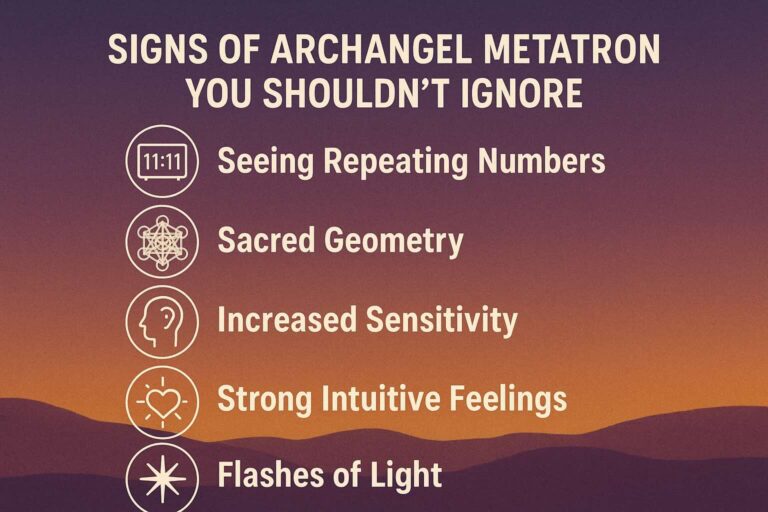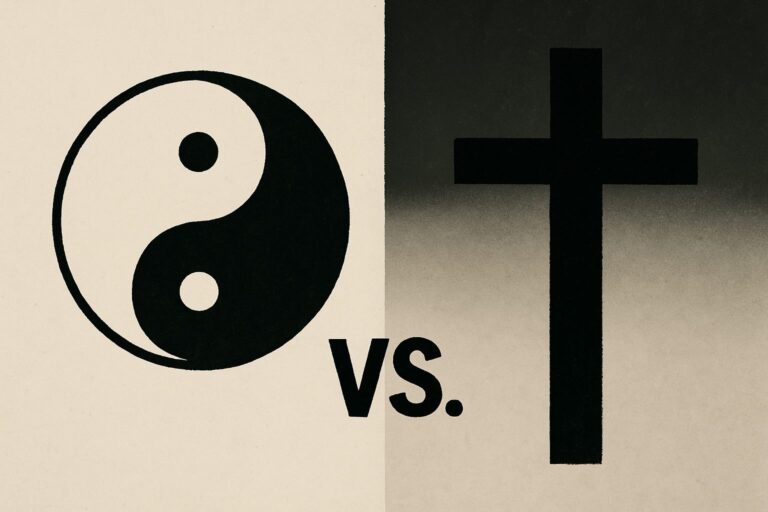Top 10 Secrets Revealed: What Direction Should Your House Face for Good Feng Shui
In this article
- 1 What Direction Should Your House Face for Good Feng Shui
- 2 Understanding the Basics of Feng Shui
- 3 Importance of House Orientation in Feng Shui
- 4 Ideal House Directions Based on Feng Shui Principles
- 5 Personal Kua Number and Direction Compatibility
- 6 Best House Directions by Element
- 7 Feng Shui Compass (Luo Pan) vs. Magnetic Compass
- 8 Geographic and Climatic Considerations
- 9 Common Feng Shui Mistakes in House Orientation
- 10 Enhancing Your House’s Facing Direction
- 11 Feng Shui Cures for Unfavorable Directions
- 12 Case Studies of Famous Feng Shui-Oriented Homes
- 13 The Role of the Main Door in Feng Shui
- 14 Aligning Business Properties Using Feng Shui
- 15 FAQs About House Direction in Feng Shui
- 15.1 1. Can you change your home’s energy without changing direction?
- 15.2 2. Is it okay if the house doesn’t face my best direction?
- 15.3 3. Which is more important—house facing or door direction?
- 15.4 4. Does geography override compass direction in Feng Shui?
- 15.5 5. What if I live in an apartment?
- 15.6 6. Are digital compasses accurate for Feng Shui?
- 16 Conclusion: Finding Balance and Harmony with the Right Direction
What Direction Should Your House Face for Good Feng Shui
Creating a peaceful, prosperous home goes beyond design and décor. According to ancient Chinese philosophy, Feng Shui is the art of harmonizing your space with natural energies. One of the most influential factors in this practice is the direction your house faces. Whether you’re building a new home, buying, or just curious, understanding what direction your house should face for good Feng Shui could change your life—literally.
Let’s dive deep into the principles, interpretations, and remedies that can help align your home with positive energy and bring greater balance, wealth, and happiness.
Understanding the Basics of Feng Shui
What is Feng Shui?
Feng Shui (风水), meaning “wind and water,” is an ancient Chinese system developed to help people live in harmony with their surroundings. It focuses on the flow of Qi (or Chi), the vital life force that moves through everything. A properly Feng Shui-aligned home supports this flow, promoting health, prosperity, and emotional well-being.
The Five Elements and Their Significance
The entire Feng Shui framework is based on the Five Elements: Wood, Fire, Earth, Metal, and Water. Each element correlates with specific directions, colors, emotions, and qualities:
| Element | Direction | Attributes |
|---|---|---|
| Wood | East, Southeast | Growth, vitality, family |
| Fire | South | Passion, fame, energy |
| Earth | Center, NE, SW | Stability, nourishment |
| Metal | West, Northwest | Precision, creativity |
| Water | North | Flow, intuition, career |
Understanding which element dominates your area can guide your choice of home orientation.
Yin and Yang: Balancing Energies
Feng Shui also revolves around Yin (passive) and Yang (active) energies. Your home should strike a perfect balance—too much Yin leads to stagnation, too much Yang causes chaos. The orientation of your home helps regulate these energies naturally.
Importance of House Orientation in Feng Shui
How Direction Impacts Energy Flow
The front of your house is considered its “mouth of Qi”, where energy enters. This makes the facing direction critically important. A favorable orientation invites good Qi, while a poor one blocks or misdirects it, affecting your family’s fortune, relationships, and even health.
The Concept of Qi and its Movement
Qi flows like water. If a house faces a direction where Qi is fast, obstructed, or chaotic (like toward a highway or sharp corner), it creates negative energy called Sha Qi. A good orientation ensures that Qi flows gently and smoothly, nourishing every room.
Ideal House Directions Based on Feng Shui Principles
South-Facing Homes: Fame and Recognition
A home facing South benefits from Yang energy, sunlight, and warmth. This direction supports:
Recognition and social success
Strong family ties
Increased opportunities
In the Northern Hemisphere, this orientation is especially auspicious due to sun exposure.
East-Facing Homes: Health and Family Growth
Homes facing East are aligned with Wood energy, making them ideal for:
New beginnings
Personal growth and development
Improving health and vitality
Perfect for young families or those starting new ventures.
North-Facing Homes: Career Luck
North symbolizes Water energy and governs career and flow. These homes:
Enhance career prospects
Support travel and connections
Encourage spiritual depth
Though it receives less sunlight, you can balance this with proper lighting and décor.
West-Facing Homes: Creativity and Children
Facing West taps into Metal energy, promoting:
Creativity and artistic ventures
Joyful, playful energy—especially good for children
A calm, reflective atmosphere
West-facing homes shine in the late afternoon and are perfect for calm evenings.
Personal Kua Number and Direction Compatibility
How to Calculate Your Kua Number
Your Kua number (also called Gua) personalizes Feng Shui directions based on your birth year and gender. It determines your favorable and unfavorable directions.
Basic formula:
For males: Add the last two digits of your birth year and subtract from 10.
For females: Add the last two digits of your birth year and add 5.
Example: Male born in 1987: 8 + 7 = 15; 1 + 5 = 6; 10 – 6 = 4 (Kua Number)
East vs. West Group People
Based on Kua, people fall into two groups:
| Group | Favorable Directions |
|---|---|
| East Group | North, South, East, Southeast |
| West Group | West, Northwest, Southwest, Northeast |
Matching Directions to Personal Kua
For ideal Feng Shui, match your home’s facing direction with your Kua group. If that’s not possible, focus on aligning your main door, bed, and desk toward your favorable directions.
Best House Directions by Element
Fire Element & Suitable Facing
Direction: South
Enhances: Passion, leadership, energy
Suitable for: Entrepreneurs, performers, extroverts
Water Element & Suitable Facing
Direction: North
Enhances: Wisdom, communication, serenity
Suitable for: Writers, travelers, spiritual seekers
Wood, Earth, Metal Element Directions
Wood: East/Southeast – Health, family unity
Earth: SW/NE – Balance, nurturing, education
Metal: West/NW – Logic, creativity, wealth generation
Use your element sign to harmonize with your house’s direction for optimal results.
Feng Shui Compass (Luo Pan) vs. Magnetic Compass
How to Use a Feng Shui Compass
In traditional Feng Shui, experts use the Luo Pan, a specialized compass with multiple concentric rings containing complex symbols and information. To properly align your house:
Stand at the front door, facing outward.
Hold the Luo Pan flat at your waist level.
Take multiple readings to average out magnetic interference.
Align your house’s orientation with the compass’s indicators.
Aligning Your Home with True Directions
While the Luo Pan is ideal, most homeowners rely on a standard magnetic compass or smartphone app. Just make sure to:
Calibrate your device properly.
Avoid metal interference like cars or electronics.
Adjust for magnetic declination if needed (especially in Western countries).
Geographic and Climatic Considerations
Northern vs. Southern Hemisphere Adjustments
In Feng Shui, South-facing homes are generally preferred. However, this concept originates from China in the Northern Hemisphere. If you live in the Southern Hemisphere, you might want to consider North-facing homes to get more sunlight and warmth.
Urban vs. Rural Environment Feng Shui
Urban homes may need more Feng Shui adjustments due to buildings, roads, and energetic clutter.
Rural or suburban homes have more natural Qi but should still avoid:
Being at the end of a T-junction.
Having sharp corners or edges pointing at the home (poison arrows).
Facing cemeteries or electrical towers.
Common Feng Shui Mistakes in House Orientation
Ignoring Local Environment
Many people focus solely on compass directions without considering their surrounding environment. Key mistakes include:
Facing a busy road or alley.
Having a cluttered or neglected front entrance.
Overlooking natural light and airflow.
Facing Sharp Angles or Roads
Homes that face directly toward a dead-end street, sharp building corner, or highway overpass may attract Sha Qi, which brings misfortune or disharmony.
Obstructed Front Door Views
Qi must enter smoothly. An obstructed or blocked front view—like a wall, staircase, or tree—can block prosperity and limit opportunities.
Enhancing Your House’s Facing Direction
Use of Mirrors and Crystals
Strategically placed mirrors can reflect negative energy and expand light and Qi in dark areas. Crystals, especially clear quartz and amethyst, help absorb and redirect energy where needed.
Landscaping and Water Features
Place fountains or ponds in front of your home to attract wealth.
Ensure pathways curve gently toward your front door, not directly.
Use healthy, well-maintained plants to channel positive Qi.
Adjusting Energy with Interior Design
If the home’s facing direction isn’t ideal:
Orient key furniture (bed, stove, desk) toward auspicious directions.
Use color schemes matching your favorable elements.
Incorporate lighting to counteract any dark, stagnant areas.
Feng Shui Cures for Unfavorable Directions
Symbolic Remedies
Place symbolic items to adjust or neutralize negative energy:
Ba Gua mirrors to reflect harmful energy.
Fu dogs or guardian lions for protection.
Coins or bells to invite prosperity.
Redirecting Qi Flow
Use rugs, screens, or partitions to redirect energy.
Keep hallways clear and uncluttered to avoid Qi stagnation.
Enhancing Auspicious Areas
Even if your house faces an unfavorable direction, strengthening the favorable sectors inside—like wealth or health corners—can balance the overall energy.
Case Studies of Famous Feng Shui-Oriented Homes
Historical Examples
The Forbidden City, Beijing: Designed with impeccable Feng Shui, including perfect symmetry, South-facing gates, and elemental harmony.
Ancient temples and pagodas: Often South or Southeast facing for solar and spiritual alignment.
Modern Celebrity Homes with Feng Shui Layout
Actress Gillian Chung reportedly redesigned her Hong Kong apartment for career luck.
Business magnate Donald Trump once consulted a Feng Shui master for his buildings in Asia.
These examples show that alignment with nature and energy isn’t just superstition—it’s a respected tradition worldwide.
The Role of the Main Door in Feng Shui
Placement and Orientation
The main door is called the “mouth of Qi”. It determines how energy enters your life. Even if your house doesn’t face your best direction, ensure the door itself does.
Energy Flow In and Out of the Home
Key tips:
Door should open inward for welcoming Qi.
Avoid placing it directly opposite a back door or large window.
Keep the area around the door clean and open.
Aligning Business Properties Using Feng Shui
Commercial Spaces Facing Directions
For offices and shops:
South-facing for visibility and fame.
East-facing for dynamic growth.
North-facing for stable, long-term business success.
Attracting Success through Orientation
Beyond facing direction, success in business also depends on:
Customer flow patterns.
Entrance placement.
Interior energy circulation.
FAQs About House Direction in Feng Shui
1. Can you change your home’s energy without changing direction?
Yes! Through interior design, symbolic cures, and repositioning furniture, you can compensate for unfavorable facing.
2. Is it okay if the house doesn’t face my best direction?
It’s not ideal, but not a dealbreaker. Focus on aligning your bed, desk, and stove to your best directions.
3. Which is more important—house facing or door direction?
Both matter, but if you can’t change the house, adjusting the main door direction is the next best thing.
4. Does geography override compass direction in Feng Shui?
Yes. If you live in a different climate zone, adjust Feng Shui practices accordingly. For example, in Australia, North-facing homes are better than South.
5. What if I live in an apartment?
Orient based on the building’s main entrance and your unit’s door. Inside, focus on internal arrangement and direction of key furniture.
6. Are digital compasses accurate for Feng Shui?
They’re useful but not perfect. For precise readings, use a Luo Pan or consult a professional Feng Shui expert.
Conclusion: Finding Balance and Harmony with the Right Direction
Understanding what direction your house should face for good Feng Shui is more than just picking North, South, East, or West—it’s about aligning your space with nature, energy, and your own personal life path. Even if you’re stuck with a less-than-ideal orientation, Feng Shui offers practical remedies and enhancements to restore balance.
In the end, the best direction is one that supports your energy, purpose, and happiness. Combine ancient wisdom with modern sensibilities, and you’ll find your home becoming a true sanctuary.
Related Reading:
Is Feng Shui Evil? 9 Truths That Will Surprise You – SparkMart369.com
Top 10 Things You Didn’t Know About Feng Shui Bracelets (2025 Guide) – SparkMart369.com
Feng Shui: Historical Evolution and Practical Examination – SparkMart369.com
12 Must-Know Feng Shui Bracelet Rules for Good Luck and Positive Energy
Step-by-Step Guide to Wearing and Caring for Feng Shui Bracelets in 2025 – SparkMart369.com







